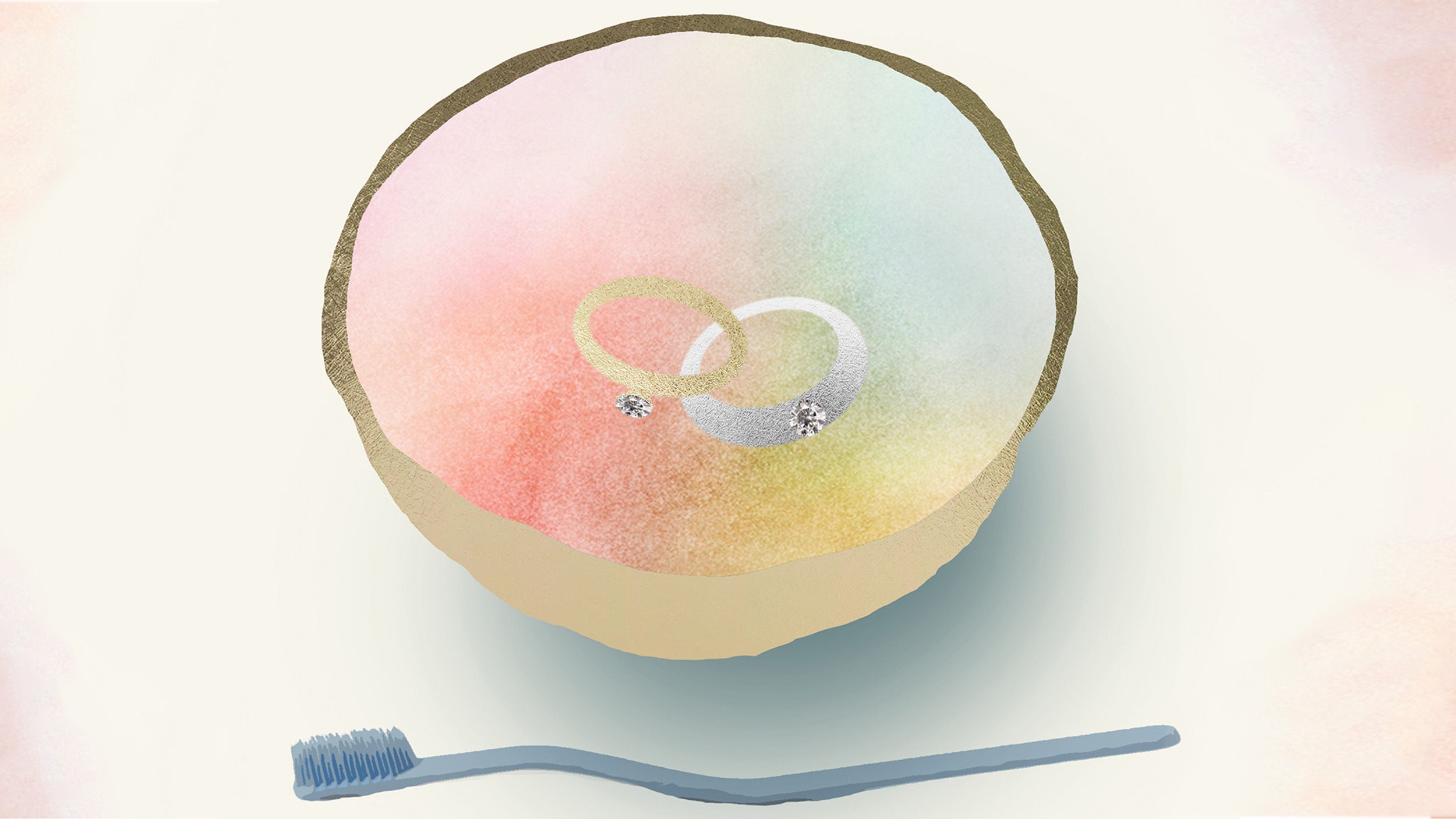You’ve researched, invested and now own your very own sustainable AïANA piece (or three and counting!). The journey doesn’t stop there - it’s a lifetime story you just embarked on, which means taking care of your jewellery.
Luckily for you, quality jewellery is pretty low maintenance - just follow these steps to ensure that your AïANA jewellery will truly become heirloom-worthy.
Light Clean (every few weeks)
Especially for those pieces that you wear every day, try the following:
Ingredients: 1 tsp of fragrance-free dishwashing soap, 1 cup of warm water, bowl or shallow dish
How To: Mix dish soap into a cup of warm water until fully dissolved. Dip your jewellery in the solution and use a soft cloth or soft bristle toothbrush to gently scrub clean. Rinse with fresh water and let dry on a clean, soft cloth.
Tip: use sparkling water to dislodge extra dirt with bubbles
Polish (every few months)
Tarnish and residue can leave a fine film on your jewellery's surface, leaving it duller than it should be. It may surprise you how vibrant it can become with a brief polish:
Ingredients: a quality polishing cloth
How To: The key to using a polishing cloth is to be gentle - they are impregnated with microabrasive chemical or physical buffers so you really only want to be taking care of minor surface imperfections to get the shine back. And remember, not all polishing cloths are created equal. Ensure you are using the right tool for the job at hand (there are all purpose metal cloths, but if it's specifically for silver - don't use it for gold).
Tip: use a magnifying glass and you'll really be able to see what needs more attention
See our note below on how best to take care of White Gold jewellery
Deep Clean (when needed)
For stubborn dirt or intricate, hard to reach designs, try the below:
Materials: 1 ultrasonic machine, 1 cup plant-based jewellery cleaning solution
How To: This machine works by sending sound waves through a cleaning solution to remove built up dirt and grime. Once only available to industry professionals, home versions are now available at reasonable prices. Follow the manufacturer's instructions for best results.
Tip: be careful with this method on delicate pavé settings as it can loosen the stones
Professional cleaning (at least annually)
Much like spring cleaning or a car tune up, we recommend a professional clean for your pieces, especially for your most precious items and those with delicate settings:
A professional clean should entail:
- Resizing of your ring if needed
- A thorough and professional clean of your diamond
- Making any slight adjustments to settings (especially prong settings) to ensure diamonds are secure
- Polishing, and replating white gold if necessary (every 3-5 years)
Special Notes
White Gold
Maintaining white gold is a little trickier compared with yellow gold or palladium white gold, due to the rhodium plating that’s used in the finish to make it extra white. Avoid abrasive substances while cleaning, as using harsh materials to clean white gold will, over time, have a noticeable effect on its surface. If your ring is looking scratched, never fear - these can be polished out at your local jeweller. Looking dull, even after a clean? It might be time to restore the rhodium plating (every 3-5 years). Read more about white gold in our blog here.
Tips for Longevity
Avoid using detergents that contain chlorine or other harsh chemicals while cleaning as these can dull your jewellery. You'll want to avoid wearing your pieces in swimming pools or hot tubs for this reason.
Swimming in the ocean or wearing in the shower every now and again is OK, but over the long term, contact with body soaps, shampoos, and saltwater will have an effect on your precious metals (nevermind the risk of losing them in the water!).
Storing your Jewellery
While you’re not wearing them, try to keep your jewellery stored separately, to avoid surface scratches and tangles. While diamonds may be the hardest material, they can scratch each other, so best to give these beauties some space from one another when storing them.
